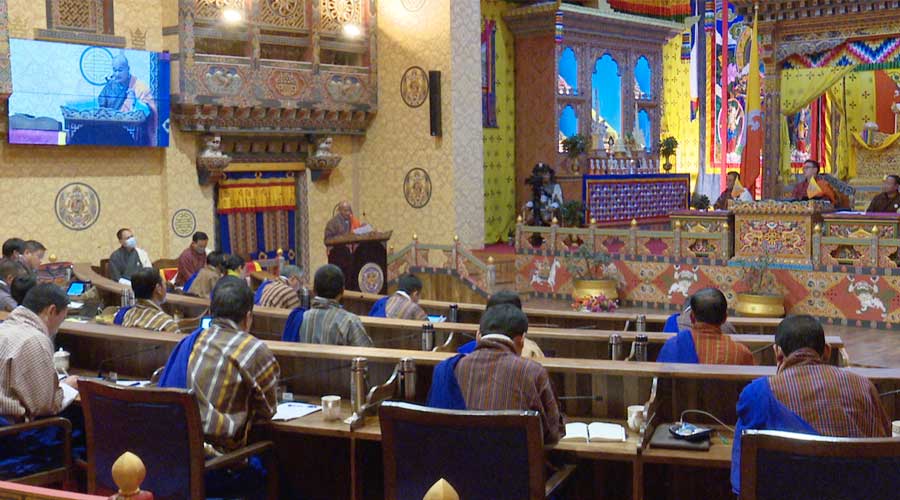
Bhutan is one step closer to becoming a member of the International Solar Alliance or ISA. The alliance is an inter-governmental treaty-based organization with a global mandate to catalyze solar growth by helping to reduce the cost of financing and technology. After the National Assembly passed the framework agreement on the establishment of the ISA last year, the National Council deliberated mostly in support of the agreement on Monday.
The ISA was conceived as a joint effort by India and France to mobilize efforts against climate change through the deployment of solar energy solutions. It was conceptualized on the sidelines of the 21st Conference of Parties, COP21, to the United Nations Framework Convention on Climate Change held in Paris in 2015.
Most of the council members supported the country’s interest in becoming a member. Economic Affairs Minister Loknath Sharma said it will help the country generate solar energy, especially during the lean season of hydropower while also reducing the cost of finance and the cost of technology.
“If we become a member of ISA, member countries will support us through technical assistance and funding assistance. There are so many countries in this alliance. Also, the vision of this alliance is in line with our country’s vision, it will not affect our country’s sovereignty,” Lyonpo said.
The framework agreement comprising 14 articles was referred to the Social and Cultural Affairs Committee for review prior to the discussion in the House. The committee also pointed out the benefits of joining the alliance.
“The main objective of the ISA is “every home no matter how far away will have a light at home”. In Bhutan, we know that there is more than 99 per cent coverage of electricity from our hydropower. However, there are still a few flung places, high-altitude places like Gasa, Lunana, Lhuentse Singye Dzong, and Mongar Aja Nye still yet to receive electricity due to their location. Solar energy will benefit these places and improve the livelihoods of people there,” said Lhaki Dolma, the Chairperson of the Social and Cultural Affairs Committee.
While many supported Bhutan’s membership in the alliance, the discussion also met with numerous questions and doubts from the members present. Many also asked if there is a possibility of giving future projects to the private sector.
At present, more than 100 countries are signatories to the ISA Framework Agreement, of which over 80 countries have submitted the necessary instruments of ratification to become full members of the ISA.
The National Council is soon expected to vote and adopt the framework agreement.
Samten Dolkar
Edited by Sonam










